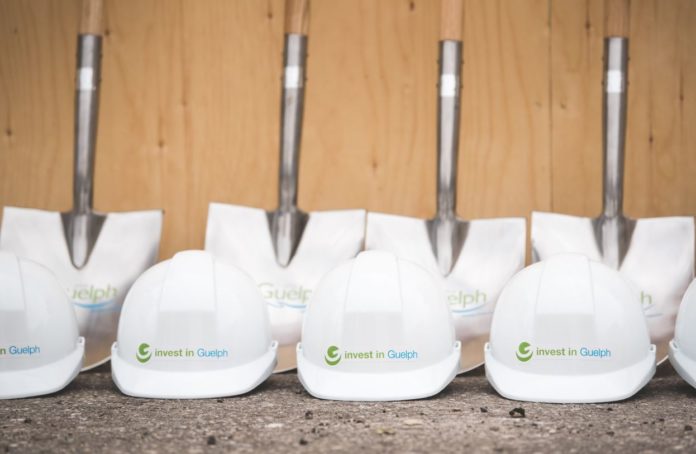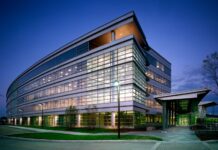Imagine you have 400 hectares (1,000 acres) of mostly undeveloped land just minutes from a thriving downtown core. What would you create?
The City of Guelph has such an opportunity and has crafted an ambitious and innovative plan that considers the City’s current and future growth needs, including local employment opportunities, while balancing the need for sustainability and environmental protection.
The area, near Guelph’s eastern boundary, is called the Guelph Innovation District. Guided by six key principles – environmental and heritage protection, sustainability, mobility, attractiveness and memorability, diversity of uses, and innovative employment opportunities – the City is re-envisioning the use of this land, currently owned by the Province of Ontario, as an innovative, connective, and sustainable link from Guelph’s past to the community’s future. The Innovation District, Guelph’s downtown core and the University of Guelph will form a knowledge-based innovation cluster that supports a future-ready Guelph.
A third of the land was sold by the Province of Ontario to local developer Fusion Homes in 2021 to create a new residential, mixed-use and employment area, and a heritage conservation district study is currently being undertaken for the remainder of the lands, which functioned as the Ontario Reformatory from 1910 to 2001.
Future-looking plans aim to add thousands of new jobs in the five focus sectors of Guelph’s Economic Development and Tourism Strategy: agri-innovation, cleantech, information technology, advanced manufacturing, and life sciences. The district will form part of a triad that includes Guelph’s downtown core and the University of Guelph, all working together to form a knowledge-based innovation cluster.
Filling those new jobs will mean new workers and they will need a place to live. That’s why Fusion Homes is getting ready to build living spaces for six thousand people within the District, with the intent to have shovels in the ground in 2024-Ryan Scott, senior vice president of development and finance with Fusion Homes, said it’s the company’s most ambitious project to date and possibly even for the city itself.
“We want to make sure that this community is relevant, not just when it gets built in 2028 but into 2050,” he said. “We’ve heard great feedback from stakeholders and from Guelph City Council about the fact it’s a local developer taking on a project of this scale inside the city.”
Aside from jobs and living space, Fusion’s goal in the new community is to ensure residents can easily walk and cycle around to get to their destinations, and to ensure the area is attractive even to non-residents. The developer’s concept continues to evolve as it navigates the block planning process with the city.
“It’s a large parcel that allows us to think in terms of a complete community as opposed to just a cookie cutter subdivision,” added Scott. “We hope to set this development apart with a variety of housing options, plenty of amenities, retail, useful parks and trails with good connections, and jobs.”
Long-term, the Guelph Innovation District is not only vital to meeting local employment and housing targets consistent with Guelph’s growth management strategy, but also essential to building a thriving, future-ready city.
















